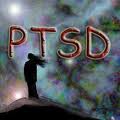May
18
PTSD Series Discussion #2
Filed Under Combat PTSD, PTSD, PTSD treatment, Tears of a Warrior, War
 Question: 2: Is PTSD different from Combat Stress?
Question: 2: Is PTSD different from Combat Stress?
The answer to this question may depend on which study you might read or which doctor is doing the diagnosis. Combat Stress has often been referred to as PTSD. “During the Civil War they called it Irritable Heart. During World War I and II it was referred to as Soldier’s Heart or Shell Shock and other terms described it as Neurosis, Combat Fatigue, or Combat Exhaustion (pp. 66-67, Tears of a Warrior, 2010). Every war has coined a term that seemed to describe a warrior who returned from combat with behaviors and reactions that were not a part of his/her life before the battles. Whatever one might prefer to call the behavior is not important. What is important is if the behavior interferes with the person’s ability to live a normal, happy life or the behavior negatively impacts family, friends, or work, you should get help immediately. Today, PTSD is the accepted medical term for similar symptoms from all wars.
Question 3: If my serviceperson has PTSD, will it better?
Our belief is that those suffering from PTSD can and will get better. Some fortunate few whose trauma is not as intense may be able to heal on their own. Most, however, who have seen too much, done too much, lost too much, may only move towards healing with the outside support of a trained physician or therapist. For many, like my husband, there has been no such thing as a full cure. Nevertheless, appropriate medication, counseling, and self-meditation have been a tremendous help in getting to that “better” place. With “better” understanding of what the person is facing and how those closest to him/her can offer appropriate support, the family can become a safer, stronger and more caring unit. Pretending that nothing is happening or that in some miraculous way tomorrow you will awake and all the bad stuff will be gone, is simply not realistic. It doesn’t just go away, no matter how hard you try. In fact, trying harder often makes the situation worse. The best approach to addressing these ongoing painful ghosts is information, productive action, and the courage to admit something is not quite right. Obtaining the help and treatment needed to move towards better physical and emotional health is the best step to recovery.
Comments
One Response to “PTSD Series Discussion #2”


My brother suffered from PTSD for years. He served two tours of duty during the Vietnam War.He passed away on August 16, 2007. His birthday was May 18, same day this article was posted. May God bless each and every serviceman and their families. We are deeply indebted for the sacrifices each has made and to the families who have stood by their side. My husband was also in the Air Force, so I understand what each of you is going thru.